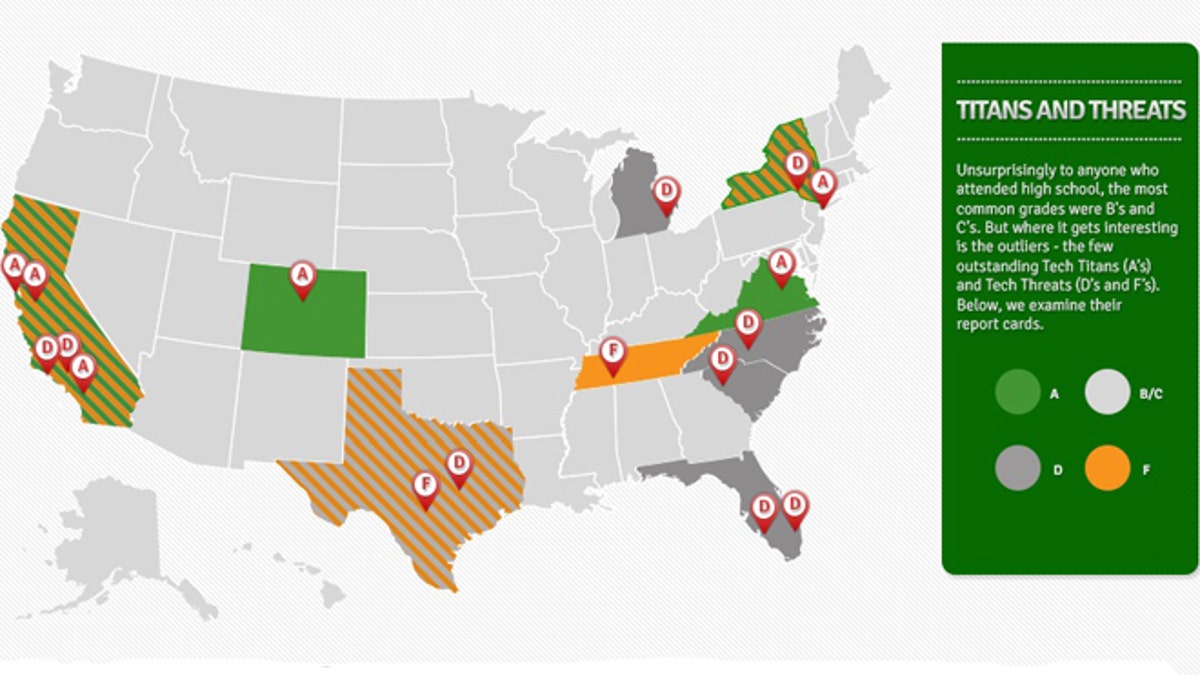
Nov. 5, 2012: A new "CrunchGov" database from popular technology site TechCrunch examines how the 435 members of the House of Representatives voted on tech-related issues. (TechCrunch)
Tech-savvy or technophobe?
The next war is likely to be a cyberwar. The U.N. will soon vote on proposals that may lead to censorship online. From immigration to an open Internet, technology touches on many aspects of our lives. But not every candidate knows his ones from his zeroes.
For those voters still undecided in the last hours before the 2012 election, TechCrunch has unveiled a guide to Congress for the technologist, separating the geeks from the lost. The site labels Representatives Eric Cantor, R-Va., Darrell Issa, R-Calif., and Anna Eshoo, D-Calif., as “Tech Titans.” Each earned an A grade for tech-friendly votes on bills like SOPA -- which many web leaders feared could lead to online censorship -- and HR.3012, the Fairness for High Skilled Immigrants Act of 2012.
[pullquote]
Republicans Lamar Smith, R-Texas, Charles Grassley, R-Iowa, and Marsha Blackburn, R-Tenn., earned the only F ratings. But neither party has an edge when it comes to tech, the site noted.
“Democrats and Republicans have evenly supported issues important to the tech industry, such as immigration, an open Internet, and investment reforms,” wrote Gregory Ferenstein on TechCrunch. According to the site’s analysis of voting records for the 435 members of the House of Representatives, 82 percent of Democrats received solid grades for their technology know-how, while 83 percent of Republicans did.
And while party doesn’t play a big factor, age does: The older Representatives hold the poorest record in voting on tech-related issues, the site notes.
“Younger members are more [tech-]friendly than older ones, and the South is littered with members who snapped up our relatively few D’s and F’s,” Ferenstein said.
Check out the report card at TechCrunch. And be sure to vote -- whether electronically or the old fashioned way.








































